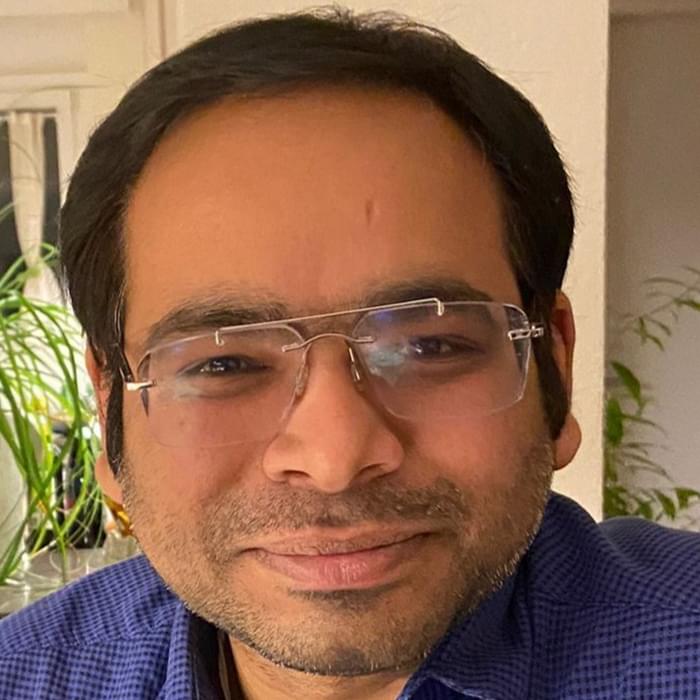Dr. Nikhil Jain
Nikhil Jain, Ph.D. is a Mechanobiologist and Principal Investigator at Syngene International, interested in inflammation, aging, bioengineering, and human health. He is a cell engineer who specializes in mechanobiology and is developing novel bioengineering tools and techniques and combining them with cutting-edge epi-imaging, and advanced “omics” to tackle challenging questions in human health.
At Syngene since 2022, Nikhil is active in Discovery Biology, where he is working on Inflammation, Immunology, High-Content Quantitative Imaging, Drug Discovery, Cell Engineering, and Human Ageing.
Previously, he was Assistant Professor and Birmingham Fellow at the University of Birmingham, UK, where he was working across the Institutes of Inflammation and Ageing, and the School of Chemical Engineering. His focus was on Human aging, cellular senescence, inflammation, immunology, bioengineering, novel diagnostic markers, therapeutic targets, and high-resolution imaging.
In his lab, Mechano-theranostics lab (MeTL), he mainly focused on applying fundamental mechanobiology-based principles to better understand human aging and age-associated inflammatory diseases.
Their long-term goal is to couple changes in mechanical properties of aged cells with altered nuclear mechano-epigenomics programs to uncover novel mechano-signaling pathways to treat age-associated inflammatory diseases. His lab also focuses on developing new engineering techniques to develop bioengineered devices to better diagnose age-associated inflammatory diseases at the single-cell level.
Nikhil earned his Ph.D. in 2014 at the National University of Singapore, with his thesis Cell geometric constraints induce actomyosin contractility dependent changes in gene expression and chromosome positioning. He earned his Bachelor’s Degree of Technology in 2007 at the Dr. M. G. R. Educational and Research Institute, India.
Nikhil became Post-Doctoral Fellow at the ETH Zürich in 2014, where he worked on connecting 3D spatial confinement in tissue with immune cell inflammation and epigenetics. Read Spatial confinement downsizes the inflammatory response of macrophages. In 2019, he became Junior Group Leader connecting Bioengineering, Immunology, and Epigenetics with Immune cell inflammation.
During his postdoctoral tenure, he was awarded an SNF fellowship followed by an EMBO fellowship to carry out a project to study epigenetic changes during macrophage inflammation in collaboration with Prof. Yuval Ebenstein at the Tel-Aviv University and Prof. Chuan He at the University of Chicago between 2017 and 2018. With Ebenstein, Nikhil worked with super-resolution genome mapping, epigenomics, immune cell hyper-inflammation, gene expression, and DNA methylation. In Chicago, he worked on RNA modification during inflammation and disease.
While at ETH, Nikhil was also Visiting Research Fellow at Northwestern University – The Feinberg School of Medicine and the Marine Biological Laboratory in 2014 and Cornell University in 2019. Read Role of Lamin B1 in Chromatin Instability.
In 2020, Nikhil was Visiting Scientist at Radboud Institute for Molecular Life Sciences (RIMLS) in Netherlands and at the Institute of Inflammation and Ageing, University of Birmingham, before he became Assistant Professor there in 2021.
Read Global modulation in DNA epigenetics during pro-inflammatory macrophage activation and Mechanobiology of Macrophages: How Physical Factors Coregulate Macrophage Plasticity and Phagocytosis. Read Blockage of Lamin-A/C loss diminishes the pro-inflammatory macrophage response.
Visit his LinkedIn profile and Google Scholar page. Follow him on Facebook, ResearchGate, and Twitter.





